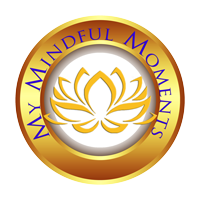If you’re like so many of us are and weren’t necessarily taught how to set boundaries or why they’re important as a child growing up, then you may find that starting this journey of setting boundaries can be a bit rocky at first. This can happen for countless reasons, but often times a big part of it is the breaking down and dissolution of codependent and unhealthy relationships, which must be deconstructed before being rebuilt with healthy conscious behaviors. This breakdown can be painful and often stressful, which is where ongoing self-care and mindfulness practices can be extremely helpful. Keep in mind that none of this is as scary as it sounds in the long run, and your unique journey is just that: a journey. It is in learning to be at peace throughout our travels that we can maintain our sense of purpose and direction even if our outside circumstances tempt us to react with fear and overwhelm. Let’s explore how compassion can help us to be more assertive, even if that seems counterintuitive at first.
Sometimes when we first realize just how much we have allowed others to cross our boundaries, the initial reaction might be anger, outrage, or even shock, especially if people you’re trying to set boundaries with react with their own anger, revenge, and other fear-based behaviors. As painful as it is to say it, this is somewhat normal for people to encounter. Unfortunately, even the best of us falter under pressure, so if we are prone to allowing ourselves to react or our filter breaks down due to lack of habitual training, we might just lash out right back at them. This can lead to an escalating situation, and someone has to back down or stop giving energy and attention to it before its momentum slows down and the situation can be resolved more calmly and effectively.
It’s never too late... the caveat to that being the longer you wait, the more challenging it can be to resolve underlying issues. But it’s never too late. If not now, then when? And if not you, then who? Remember, the only person you have any control over is yourself.
When the time comes to talk things through and try to get to a common understanding, you will most definitely need to practice setting boundaries in conversation, with compassion but also with assertiveness. To prepare yourself and go forward with confidence and resolve, I’d like to suggest that you practice saying statements to tell people no and stand up for your rights and freedoms as a human being.
Prepare Yourself with Assertive Statements
Preparation and practice are important no matter what it is you’re doing. It’s no different with inner work and mindfulness, and getting accustomed to using words and phrases like this will help you to rewire your thought patterns and ease the anxiety that saying these things might cause for you if you’ve never practiced real assertiveness before. Relax... you’ve got this. You can do this, and getting a little practice can’t hurt.
1. “Thank you so much for asking me; unfortunately, I simply can’t right now.”
2. “I wish I could, but I can’t.”
3. “Can you please get back to me on that later?”
4. “I’m unable to make that kind of commitment right now.”
5. “Well, I can’t do that, but I might be able to help you with....”
6. “I’m going to say no for now, but I’ll let you know if anything changes.”
7. “I wish I could help you, but I just don’t have that to give right now.”
8. “No.”
Remember that you don’t have to agree to anything that makes you feel bad or that you simply can’t agree to for whatever reasons. This is well within your rights as a human being, and it’s up to you to put that right into practice and step into your power. Using words and phrases like these will allow you to say no when you need to with compassion and grace. Or you can simply say, “No,” and that’s it.
Was that so bad? How do you feel after asserting yourself? Can you recall a time in your life when you did assert yourself and things turned out well? It may help to remember such an experience and replay it in your mind when you find yourself needing to do it again. This will help you remember how strong you are... and that you have the ability to pleasantly surprise yourself any time you want to.
To learn more about the Mindfulness Movement and the International Mindfulness Federation, please visit:
http://executivecoachinguniversity.com/mindfulness-movement










